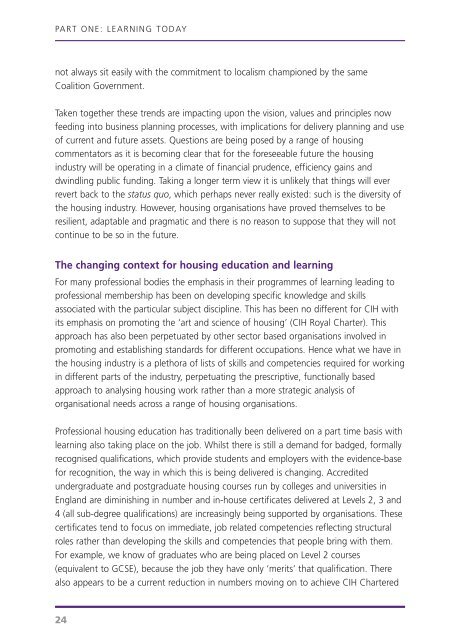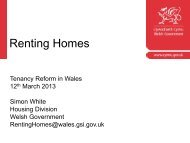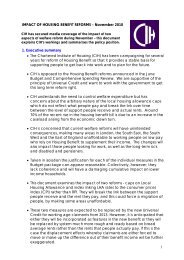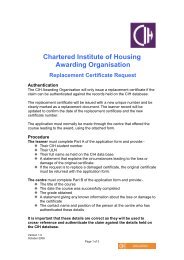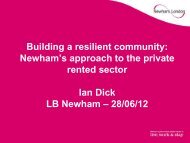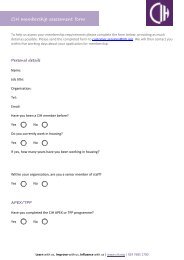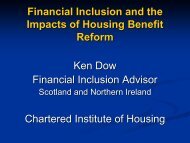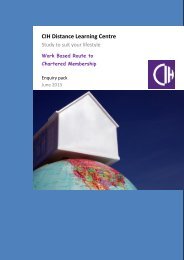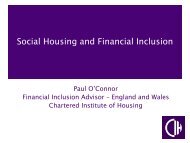View publication - Chartered Institute of Housing
View publication - Chartered Institute of Housing
View publication - Chartered Institute of Housing
Create successful ePaper yourself
Turn your PDF publications into a flip-book with our unique Google optimized e-Paper software.
PART ONE: LEARNING TODAY<br />
not always sit easily with the commitment to localism championed by the same<br />
Coalition Government.<br />
Taken together these trends are impacting upon the vision, values and principles now<br />
feeding into business planning processes, with implications for delivery planning and use<br />
<strong>of</strong> current and future assets. Questions are being posed by a range <strong>of</strong> housing<br />
commentators as it is becoming clear that for the foreseeable future the housing<br />
industry will be operating in a climate <strong>of</strong> financial prudence, efficiency gains and<br />
dwindling public funding. Taking a longer term view it is unlikely that things will ever<br />
revert back to the status quo, which perhaps never really existed: such is the diversity <strong>of</strong><br />
the housing industry. However, housing organisations have proved themselves to be<br />
resilient, adaptable and pragmatic and there is no reason to suppose that they will not<br />
continue to be so in the future.<br />
The changing context for housing education and learning<br />
For many pr<strong>of</strong>essional bodies the emphasis in their programmes <strong>of</strong> learning leading to<br />
pr<strong>of</strong>essional membership has been on developing specific knowledge and skills<br />
associated with the particular subject discipline. This has been no different for CIH with<br />
its emphasis on promoting the ‘art and science <strong>of</strong> housing’ (CIH Royal Charter). This<br />
approach has also been perpetuated by other sector based organisations involved in<br />
promoting and establishing standards for different occupations. Hence what we have in<br />
the housing industry is a plethora <strong>of</strong> lists <strong>of</strong> skills and competencies required for working<br />
in different parts <strong>of</strong> the industry, perpetuating the prescriptive, functionally based<br />
approach to analysing housing work rather than a more strategic analysis <strong>of</strong><br />
organisational needs across a range <strong>of</strong> housing organisations.<br />
Pr<strong>of</strong>essional housing education has traditionally been delivered on a part time basis with<br />
learning also taking place on the job. Whilst there is still a demand for badged, formally<br />
recognised qualifications, which provide students and employers with the evidence-base<br />
for recognition, the way in which this is being delivered is changing. Accredited<br />
undergraduate and postgraduate housing courses run by colleges and universities in<br />
England are diminishing in number and in-house certificates delivered at Levels 2, 3 and<br />
4 (all sub-degree qualifications) are increasingly being supported by organisations. These<br />
certificates tend to focus on immediate, job related competencies reflecting structural<br />
roles rather than developing the skills and competencies that people bring with them.<br />
For example, we know <strong>of</strong> graduates who are being placed on Level 2 courses<br />
(equivalent to GCSE), because the job they have only ‘merits’ that qualification. There<br />
also appears to be a current reduction in numbers moving on to achieve CIH <strong>Chartered</strong><br />
24


